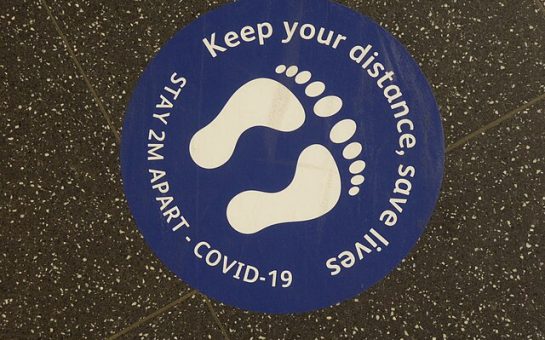Gyms across England are set to reopen on April 12 according to the new four-step plan for easing lockdown announced in February.
They will only open if strict conditions are met and at each stage decisions will be led by “data not dates”.
Since the start of the pandemic gyms have been closed in the majority of England, totaling around eight months out of 12.
Gyms and leisure centres were some of the last businesses to open after the initial lockdown.
When they finally opened in late July, it was only a few months when some were forced to close again – including those across the Liverpool City region when it was placed in Tier 3 in October.
Confusion then rose after Lancashire was put in Tier 3 but gyms were allowed to remain open.
Regular exercise may be essential for maintaining good physical health but for gym-goers the mental health benefits do not go unnoticed.
For many people, especially those who lack suitable fitness equipment at home, gyms and exercise have a huge positive impact on their mental health which they’ve been missing during lockdown.
Research has repeatedly shown that exercise can help mental health issues like depression, anxiety and stress through the release of endorphins and psychological mechanisms.
It has also shown that community-based exercise facilities such as gyms can create a supportive community for mental health.
MM spoke to gym-goers who have struggled with the closure of gyms during the pandemic.
Rebecca Mavi from Teesside highlighted the importance of regular exercise in her and her husband’s lives.
She said: “Going into lockdown took a toll on both myself and my husband.
“My husband was told he faced redundancy. He hit rock bottom, I as a runner encouraged him to come with me one day and it was a game changer.
“He began to run most days on his own and began walking for miles, he would come back energised and with a spark that had previously been extinguished with the threat of his lost job hanging over him.
“He now runs most days and says it is that that picked him up and keeps him going.”
Despite gyms be allowed to open from April 12, group classes will remain closed until at least mid-May.
Newly-qualified fitness instructor Rebecca continued: “I have very much missed the social aspect of attending classes.
“I have stayed positive throughout but definitely feel for my mental health.
“I feel gyms and classes should have been open with things in place for people to exercise. I know many older ladies who live alone and the classes were the thing they looked forward to a few times a week.”
Fitness instructor Rachel Paylor believes gyms are essential for both peoples’ physical and mental health and should have stayed open.
She said she has five children, one with severe autism who needs 24-hour supervision.
The closure of gyms means she can no longer get that time in the day for herself.
She said: “The gym lets me escape for a few hours, spending time with people who all have the same interest as me.
“Without all of this I have had no routine and feel like I’m no longer me.”
MM also spoke to members of the Manchester-based Siren Asylum team body-positive fitness studio for all who identify as womxn or womxn-aligned.
Kat said: “Sirens is my life. I’ve poured my heart and soul into this place to see it empty has been really hard.
“We are an asylum for a reason, we provide a safe place for all womxn to come and workout in a body positive atmosphere surrounded by a supporting community.
“Without that support network I’ve struggled and it’s been tough seeing our members struggle on social media without their safe haven too.
“I don’t think we should open until it’s safe enough to do so, however I feel it should be up there as priority before retail shops and restaurants.
“I believe this would be one of the best ways to counteract the mental health crisis caused by the lockdowns and the pandemic over this last year.”
Kayley added: “I would ask to see the data that shows gyms are a transmission risk.
“As far as we’re aware, studies into where COVID is transmitted have never highlighted gyms or fitness studios as high risk.
“If they did, then absolutely it’s correct to close them.”
Data published in February shows that for every 100,000 visits to UK gyms and leisure centres during 2020, only 1.7 people went on to test positive for Covid-19.
There is no evidence that transmission of the virus took place in gyms.
Photo credit: Siren Asylum Twitter



